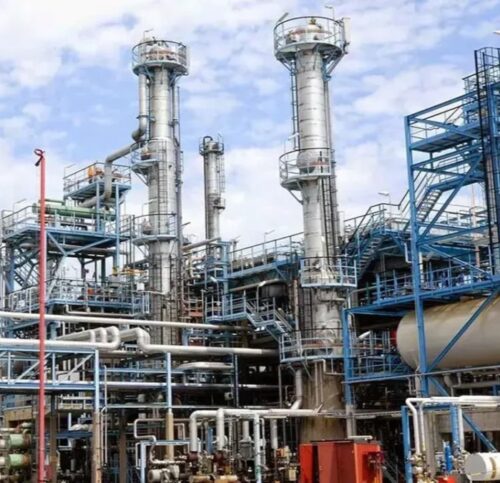
Once again, the announcement of the Port Harcourt Refinery’s upcoming resumption has sparked a mix of hope and skepticism. With an installed capacity of 210,000 barrels per day (bpd), the refinery—out of operation since 2019—is now slated to restart in August. However, past promises of resumption have failed to materialize, raising concerns among stakeholders. Since its closure, repair costs have exceeded $1.5 billion.
Efforts to repair Nigeria’s three major refineries—Port Harcourt, Warri, and Kaduna—are intended to reduce reliance on imported refined products, cut foreign exchange expenditures, and potentially lower the cost of petroleum products, particularly petrol, in the domestic market.
Mele Kyari, the Group Chief Executive Officer of the Nigerian National Petroleum Company (NNPC), announced on Monday that the Port Harcourt Refinery would begin operations in early August. Speaking at a National Assembly session hosted by the Senate Committee on Finance and led by Senator Sani Musa, Kyari described the refinery’s operationalisation as a crucial step toward Nigeria becoming a net exporter of petroleum products by December.
Kyari also stated that the measures implemented are aimed at achieving an oil production level of two million barrels per day (bpd) in the coming months. While the Kaduna Refinery is not expected to be operational before December, both the Warri and Kaduna refineries are anticipated to resume operations by the year’s end.
“We have observed growth in oil and gas production due to specific actions taken by Mr. President and a declared focus on increasing production activities, which are delivering the desired outcomes,” Kyari noted. “We are confident that we will reach the target of two million barrels per day as outlined by the Honourable Minister.”
Despite these assurances, doubts persist. Concerns have been raised about the likelihood of the Port Harcourt Refinery resuming operations as scheduled. Some claims suggest that international groups, allegedly collaborating with local actors, are deliberately sabotaging efforts to rehabilitate Nigeria’s refineries. These conspiracies allegedly aim to maintain Nigeria’s dependence on imported refined fuels, supporting foreign economies and sustaining jobs abroad at the expense of local productivity and scarce foreign exchange.
Officials from the newly inaugurated Dangote Petroleum Refinery have echoed similar concerns about the systemic challenges facing Nigeria’s refining sector.
A report by the previous parliament revealed that over N11.35 trillion naira (approximately $25 billion) has been spent on rehabilitating the Warri, Port Harcourt, and Kaduna refineries in the last decade. The report called for a forensic audit, citing the refineries’ inconsistent performance before eventually ceasing operations entirely.
The ongoing situation highlights the critical need for transparency and efficiency in the management of Nigeria’s petroleum assets as the country seeks to restore its refining capacity and reduce dependence on imports.


